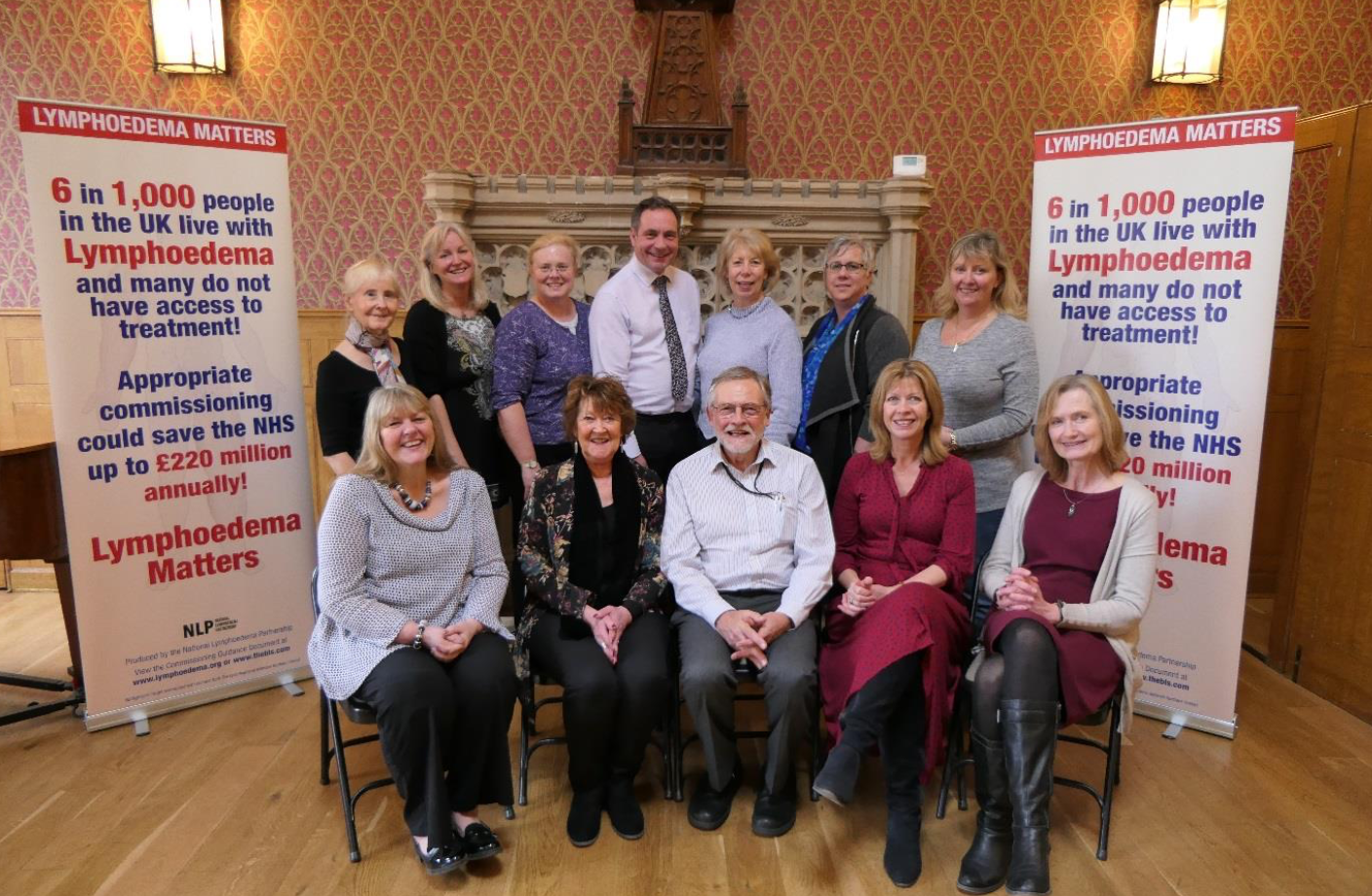The National Lymphoedema Partnership (NLP) launch of the new commissioning guidelines

The NLP celebrated the launch of the new UK lymphoedema commissioning guidelines at Portcullis House, Westminster on 5th March 2019. The event was hosted by Ms Tonia Antoniazzi MP.
The NLP is a strategic forum for those directly/indirectly involved in supporting patients diagnosed with lymphoedema, and a platform to discuss and work towards improving patient outcomes, service provision and availability of standardised care within the UK. The South of Ireland is also a stakeholder due to its close proximity and the potential for “Crossborder healthcare and patient mobility in Europe” as a result of 2014 EU legislation.
NLP Aims:
- To facilitate a shared understanding of lymphoedema service provision and its impact upon the patient, services and society within the UK/Eire.
-
To identify, discuss and address issues of common concern and avoid unnecessary duplication of effort
-
To exchange ideas, strengthen skills and share examples of good practice
-
To work with stakeholders and organisations in the development of national lymphoedema guidelines for services provision in the UK/Eire.
-
To influence external agencies in the recognition/impact of lymphoedema/chronic oedema, and to improve service provision/facilities
The key launch messages:
- Lymphoedema is a common, under-recognised condition, and often mismanaged in the community
- Treatment will improve quality of life and prevent complications, including recurrent infections
- Lymphoedema treatment must be made available by all Commissioning Groups to improve care and save money
- More than 420,000 people in the UK are living with Lymphoedema
- It is as common as Alzheimer’s disease, 4 times as common as HIV, and 12 times as common as Multiple Sclerosis
- 1 in 5 women with breast cancer will get it
- Lymphoedema is associated with many health problems if left untreated:
- cellulitis infections, often needing hospital admission
- wounds and leg ulcers, Mobility problems, pain, psychological issues...
- Management of complications is costly to the NHS
- Early diagnosis and treatment is vital for achieving the best outcomes for the patient and the NHS
- Cellulitis causes 400,000 bed days per year in UK - costing more than £254 millionper year
- The introduction of a London lymphoedema service created 94% decrease in cellulitis incidence, with 87% reduction in hospital admissions that year
- Potential NHS saving of more than £200 million per year (England figure) if we can deliver lymphoedema care to everyone
- What needs to happen next:
- Sufficient numbers of Lymphoedema treatment clinics within every CCG (England) and across the UK
- No discrimination between cancer-related and non-cancer related Lymphoedema. Equity is essential
- This will improve care and save £millions for the NHS
- Launch and acceptance of the NLP Commissioning Guidance for Lymphoedema Services
- Joint working with the NLP and Commissioning Groups




